Eco Tourism in Jammu and Kashmir - Why should we choose sustainable tourism?

Jammu and Kashmir, renowned for its stunning landscapes, cultural wealth, and hospitality, has experienced a notable increase in tourism.
Yet, with the rising number of visitors, environmental challenges have surfaced.
This blog explores the need for sustainable practices, highlighting the recent Gulmarg Ecotourism Conclave and government initiatives.
Join us on this journey to discover the wonders of the region while becoming ambassadors for a sustainable and eco-friendly future.
Also read: Himachal vs Kashmir: Where to go and what to ditch?
Historical Charms:
 Before the tumultuous events of 1947, Jammu and Kashmir was a haven for rulers and European visitors enchanted by the natural splendor of the region.
Before the tumultuous events of 1947, Jammu and Kashmir was a haven for rulers and European visitors enchanted by the natural splendor of the region.
The legacy of the British, who contributed to the development of houseboats and water sports, serves as a foundation for responsible tourism.
This historical charm needs to be built upon, adopting practices that not only respect the environment but also empower local communities.
Tourist Influx and Challenges:
 Official figures from 2022 indicate a staggering 1.88 crore visitors, including pilgrims, with Kashmir alone hosting 26.73 lakh tourists—more than double the number in 2016.
Official figures from 2022 indicate a staggering 1.88 crore visitors, including pilgrims, with Kashmir alone hosting 26.73 lakh tourists—more than double the number in 2016.
With Union Minister for Tourism G. Kishan Reddy anticipating an even higher influx, there is a pressing need to divert attention to off-beat destinations, lessening the burden on popular sites while introducing visitors to the hidden treasures of Jammu and Kashmir.
The Growing Impact of Tourism:
 Globally, tourism contributes over 5% of greenhouse gas emissions, with transportation accounting for more than 90% of this impact.
Globally, tourism contributes over 5% of greenhouse gas emissions, with transportation accounting for more than 90% of this impact.
Jammu and Kashmir has witnessed a surge in tourist arrivals, notably in destinations like Gulmarg, Pahalgam, and Sonamarg.
This surge necessitates a reevaluation of our approach to tourism to prevent adverse effects on delicate ecosystems.
Challenges Faced by Ecotourism in Kashmir:
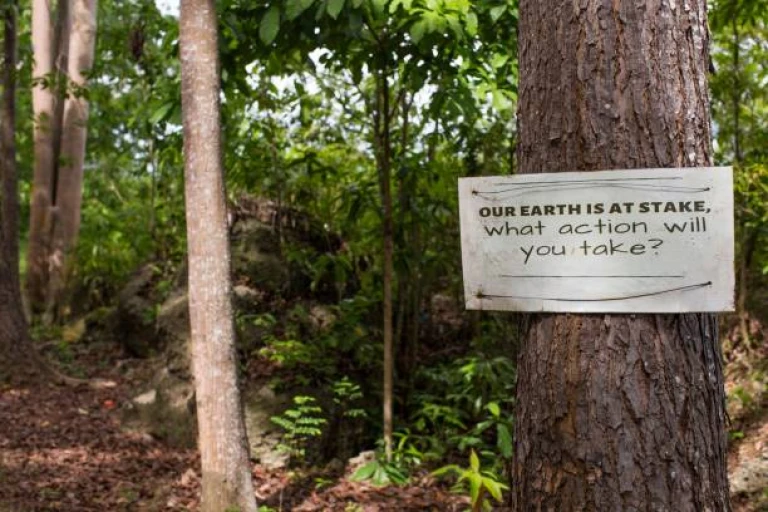
The unrestrained influx of tourists has given rise to challenges such as illegal construction and insufficient waste management.
Once serene hill stations are transforming into bustling hubs, raising concerns about the long-term environmental consequences.
Addressing these issues is vital to ensuring the sustainability of these picturesque destinations integral to Kashmir's identity.
Gulmarg Ecotourism Conclave:
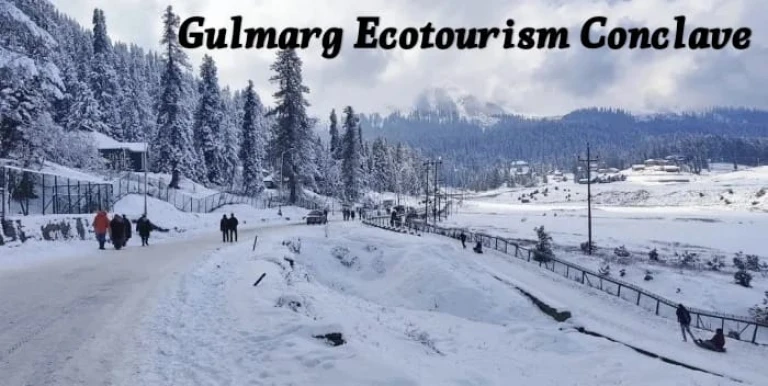
In response to these challenges, the Ecotourism Society of Kashmir, in collaboration with the Gulmarg Development Authority (GDA), recently organized an ecotourism conclave.
This pivotal gathering brought together stakeholders—hoteliers, travel agents, media persons, and government officials—to foster discussions aimed at adopting responsible tourism practices.
The Call for Responsible Tourism:
 As highlighted in the globally accepted Cape Town Declaration, responsible tourism emphasizes minimizing negative impacts on the economy, environment, and local communities.
As highlighted in the globally accepted Cape Town Declaration, responsible tourism emphasizes minimizing negative impacts on the economy, environment, and local communities.
This approach ensures that tourism becomes a catalyst for positive change, benefiting both travelers and the destinations they visit.
Also read: 10 Epic Skiing Escapes in India You Can't Miss
Government Initiatives:

In alignment with the global shift towards sustainable tourism, the Government of India has introduced the following for sustainable tourism:
National Strategy for Sustainable Tourism (2022): Mainstream Sustainability, Seven Strategic Pillars for Global Sustainable Tourism.
National Strategy for Ecotourism (2022): Enable ecotourism growth and collaboration among ministries, NGOs, and the private sector.
Draft National Tourism Policy 2022: Sustainable and Responsible Tourism Growth, Targeting $1 Trillion GDP Contribution by 2047.
Travel for LiFE Campaign (2021): encourages responsible behavior and mindful resource consumption among domestic tourists.
Swadesh Darshan Scheme 2.0: develops sustainable tourism destinations and focuses on economic contribution, job creation, skill enhancement, private sector investment, and cultural and natural resource preservation.
Sustainable Tourism for India Criteria and Indicators (STCI): benchmarks sustainable tourism practices for certification, emphasizing effective management, heritage protection, social and economic benefits, environmental conservation, carrying capacity, and minimizing negative impacts.
State Policies: States like Uttarakhand, Sikkim, and Himachal Pradesh implement policies promoting sustainable tourism while preserving biodiversity and natural wealth.
Also read: After floods, Sikkim is now welcoming tourists!
These strategies aim to mainstream sustainability in the tourism sector, creating an industry that is resilient, inclusive, carbon-neutral, and resource-efficient.
Promoting Off-Beat Destinations:
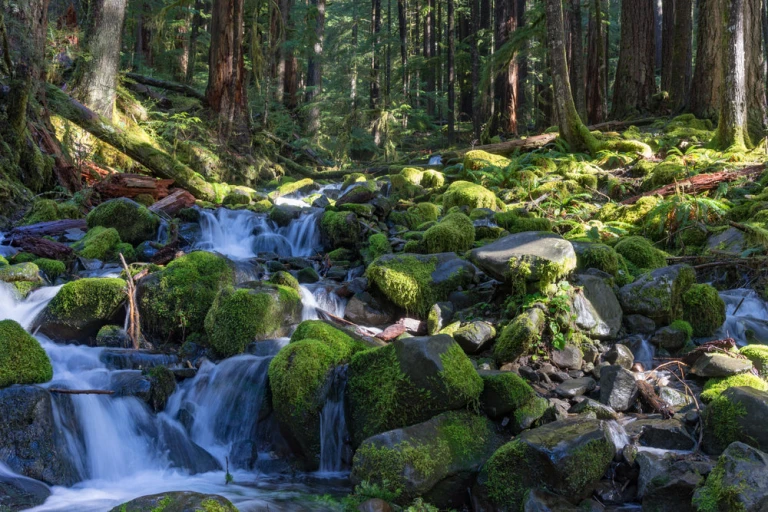 The Ministry of Tourism has implemented initiatives to diversify tourism and highlight 75 lesser-known destinations in India:
The Ministry of Tourism has implemented initiatives to diversify tourism and highlight 75 lesser-known destinations in India:
Dekho Apna Desh Initiative:
Aims to create awareness about the country's rich heritage and culture.
Extensive promotion of tourist places, including lesser-known destinations, through webinars.
Field offices conduct on-the-ground promotional activities.
A digital booklet showcasing 75 incredible sites, including lesser-known destinations.
Aggressive social media promotions to popularize these sites.
This strategic move aims to distribute tourist footfall, alleviating the strain on well-known spots while simultaneously unveiling the unexplored wonders of Jammu and Kashmir.
Why choose sustainable tourism in Jammu and Kashmir?
1. Preserving Natural Beauty:
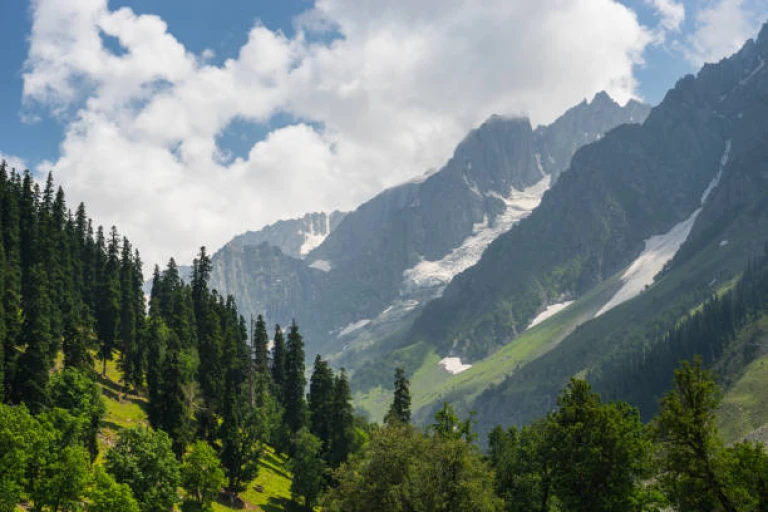
Opting for sustainable tourism ensures the preservation of the region's pristine landscapes, safeguarding them for generations to come.
2. Cultural Respect:
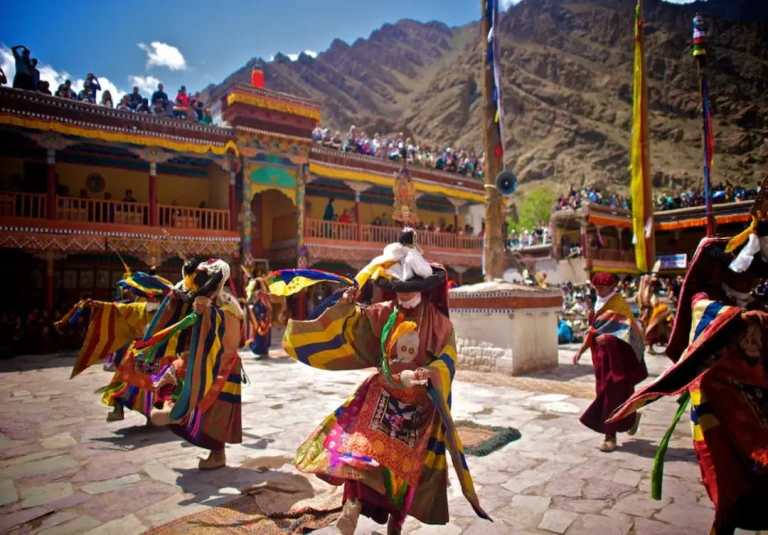 Sustainable tourism encourages a respectful exchange between tourists and host communities, fostering an appreciation for local cultures and traditions.
Sustainable tourism encourages a respectful exchange between tourists and host communities, fostering an appreciation for local cultures and traditions.
3. Environmental Conservation:
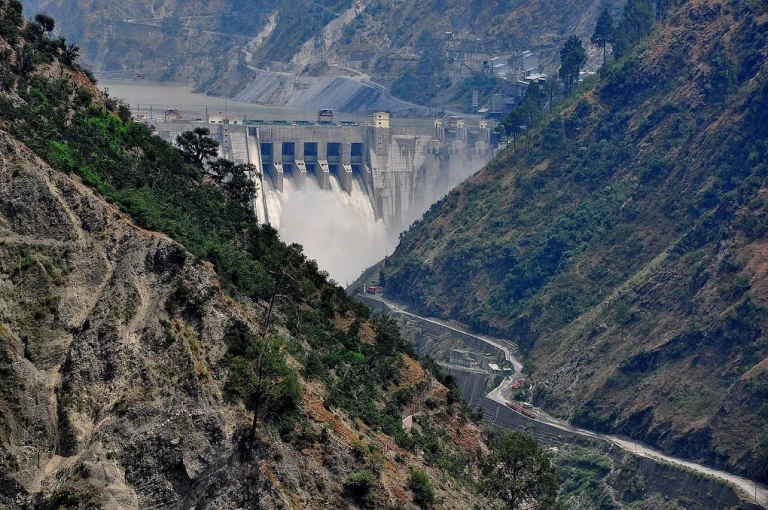 By choosing sustainable practices, we contribute to the conservation of diverse ecosystems, protecting the unique flora and fauna of the region.
By choosing sustainable practices, we contribute to the conservation of diverse ecosystems, protecting the unique flora and fauna of the region.
4. Economic Benefits:

Sustainable tourism generates economic benefits for local communities, ensuring that tourism dollars contribute to the well-being of the people who call these places home.
Also read: Top 5 Bungee Jumping Destinations in India
How can we contribute?
1. Reducing Plastic Usage:

Commit to minimizing the use of plastic and encourage local businesses to adopt eco-friendly practices.
2. Waste Management:

Support initiatives for proper waste management. Centralized processing of food waste, along with segregating and recycling, is vital for maintaining the ecological balance.
3. Promoting Green Transportation:
 Advocate for the introduction of battery-operated vehicles, reducing the carbon footprint associated with traditional transportation.
Advocate for the introduction of battery-operated vehicles, reducing the carbon footprint associated with traditional transportation.
4. Education and Awareness:

Participate in and support information, education, and communication (IEC) campaigns promoting responsible tourism. Awareness plays a key role in fostering change.
Collaborative Efforts for a Sustainable Future:

Responsible tourism requires collaborative efforts from tourists, local businesses, government bodies, and communities. By collectively embracing sustainable practices, we can ensure that Jammu and Kashmir remains a beacon of natural beauty for generations.
Also read: Ladakh Bike Trip 2023 Your Ultimate Guide from Start to Finish
Jammu and Kashmir, a natural treasure, urges us to adopt responsible travel and commit to sustainability.
Let's unite to transform it into an eco-friendly haven where nature and well-being harmonize. As ambassadors, we explore, promote off-beat destinations, and embrace eco-tourism for a thriving future.
In our collective efforts, we secure the legacy, fostering a model for responsible tourism.
Together, let's prove that mindful choices can preserve the magic of Jammu and Kashmir for generations.
Published at
About Author
Prerna Dixit
Subscribe our Newsletter
Get our weekly tips and travel news!
Related Posts
10 amazing hacks for comfortable train journeys in India
Make your Indian train journey comfortable with these 10 hacks: choose the right class, pack essentials, stay hydrated, wear comfy clothing, charge devices, bring entertainment, prioritize safety, book lower berths, use travel apps, and socialize.
10 Amazing New Attractions in Singapore - Indian Travelers Guide 2025
Explore the new yet amazing attractions of Singapore
10 Best Tourist Attractions in the Philippines for Indians
Plan your next getaway with this guide to the 10 best tourist attractions in the Philippines that Indian travellers will absolutely fall in love with.
10 Gorgeous Waterfalls Near Mumbai Perfect for September Day Trips
Escape to nature! Discover 10 stunning waterfalls near Mumbai perfect for a September day trip, complete with travel tips, food spots, and more.
10 Hidden Destinations In Northeast India
Immerse yourself in the magic of unexplored landscapes, vibrant cultures, and breathtaking adventures. Ready to redefine your wanderlust?
Latest Posts
5 International Destinations Under ₹50000 in 2026
Explore 5 amazing budget-friendly countries to visit for under ₹50,000 in 2026. Your dream international trip starts here!
5 Underground Wine Cellars in Nashik To Visit In 2026
Explore Nashik’s best underground wine cellars in 2026. Discover cool barrel rooms, aged vintages, and the secrets of winemaking.
7 Palaces Converted to Art Hotels That You Should Visit In 2026 in India
Explore 7 stunning Indian palaces turned art hotels where royal history meets modern creativity. A must-visit guide for 2026!
Top 5 Co-Working Beach Resorts in Goa in 2026
Discover Goa's best workation spots for 2026. From luxury suites to cozy beach pods, find the perfect place to work and play.
7 Must-Visit Free Museums in India for 2026
Explore India's history for free! Discover 7 must-visit museums in 2026, from Mumbai's art hubs to Delhi’s historic landmarks.

